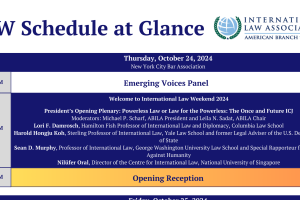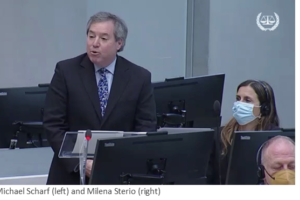Empowering the UN Security Council to Address Modern Threats to Peace and Security – Reflections on an ILW 2023 Panel
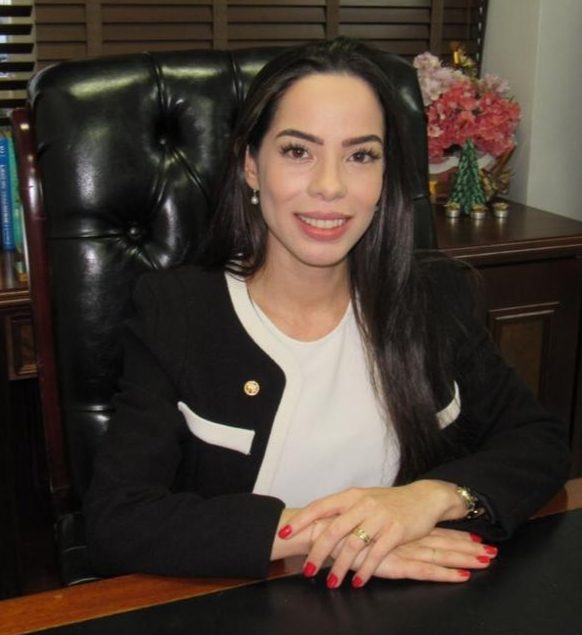 By ABILA 2023 Student Ambassador Ludmilla Evelin de Faria, Syracuse University College of Law, LL.M ’24.
By ABILA 2023 Student Ambassador Ludmilla Evelin de Faria, Syracuse University College of Law, LL.M ’24.
This blog is part of a series of reflections on ILW 2023 by our Student Ambassadors. Each Student Ambassador engaged with a variety of panels and will be sharing their experiences over the spring and in the lead up to ILW 2024.
At the International Law Weekend on October 20, 2023, Floriane Lavaud chaired an insightful panel session on “Empowering the United Nations Security Council to Address Modern Threats to Peace and Security”. This thought-provoking conversation addressed the urgent need for the UN Security Council reforms to strengthen elected members and limit permanent members’ veto power. The panelists reimagined the role of internal and external players, such as the UN General Assembly and international courts, in global peace and security. Ambassador Juan Manuel Goméz-Robledo, recently elected to a Judge of the International Court of Justice, Ambassador Alexander Marschik, Professor Ian Johnstone, and Mona Ali Khalil spoke about pressing issues, encouraging introspection and proposing solutions.
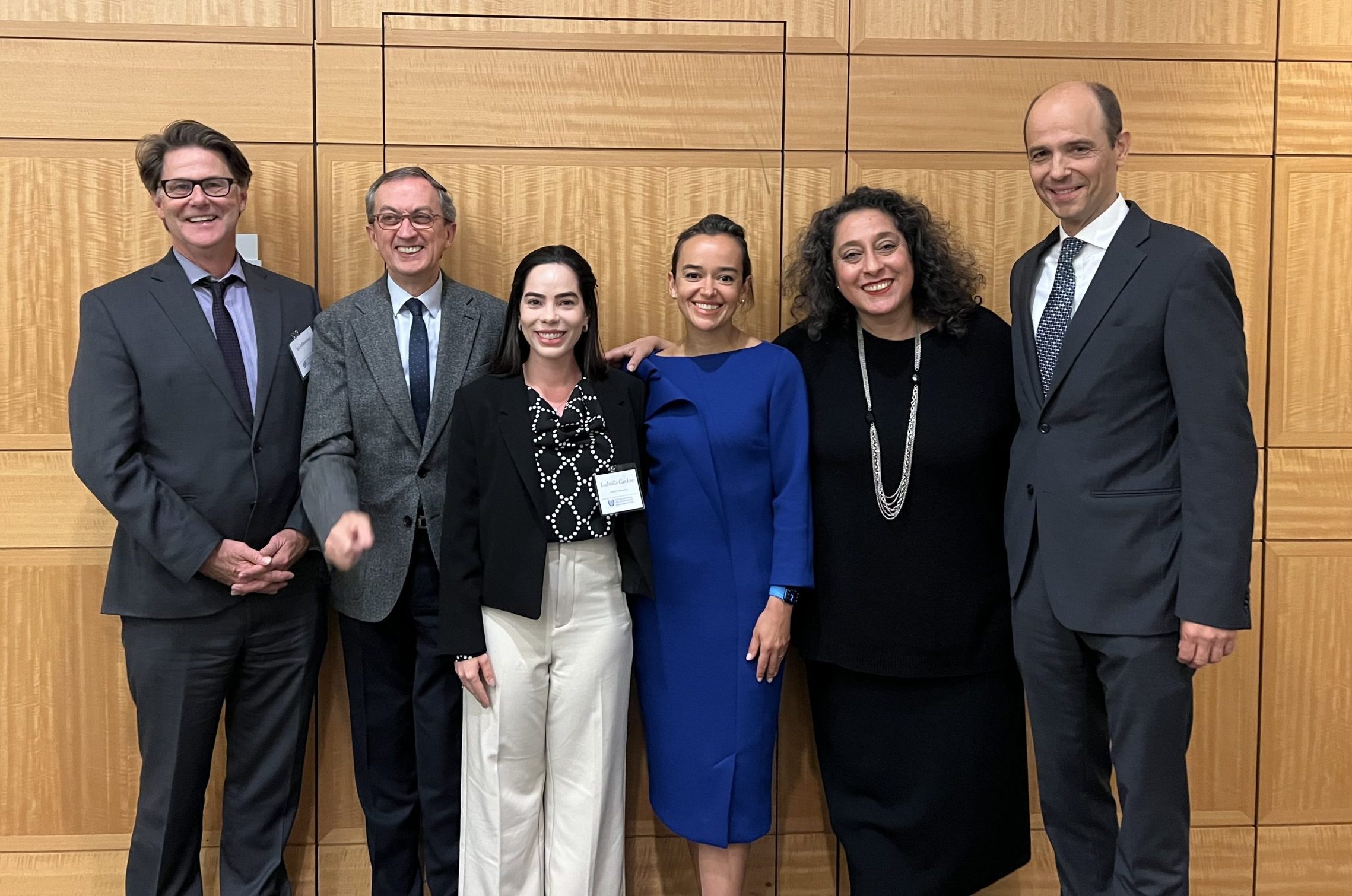
Ian Johnstone, Ambassador Juan Manuel Goméz-Robledo, Ludmilla Evelin de Faria, Floriane Lavaud, Mona Ali Khalil, & Ambassador Alexander Marschik
Throughout the panel, the critical importance of the United Nations Security Council in preserving worldwide peace and security became even more apparent. To do this, the panel underscored the need to reassess the power dynamics within the Council. The demand for a redistribution of power emphasizes the important need to adjust to the ever-changing characteristics of worldwide issues. It became evident that to uphold the principles of the United Nations Charter and adequately confront contemporary challenges, the Security Council must implement reforms. While serving as a Student Ambassador of the International Law Association – American Branch, attending the panel discussion enhanced my comprehension of the complex issues that govern international relations. It instilled a greater understanding of the United Nations’ indispensable function in molding a cohesive global environment.
At the start of the panel discussions, Mona Ali Khalil expressed concerns regarding the trust, respect, and credibility of the Security Council, which arise due to various factors, such as inadequate representation, which has implications for all ten non-permanent members, and the observation that the five permanent members have become, in some cases, the chief violators rather than serving as the primary guardians of the legal framework that the UN Charter represents. She said, “The veto has gone beyond the vital interests of the particular P-5 members but rather has been extended as a courtesy to their allies, their proxies, their mercenaries, and everybody else whom they are necessary to protect, on whatever definition of their national interests.”
Reflecting on the concerns surrounding representation, Khalil argued that while the improvement of representation in the Security Council may not completely resolve the issue, it may enhance the representative character of the council in various ways, all without requiring any amendments to the UN Charter. It is important to note that the General Assembly has the necessary authority to distribute the ten seats in a manner that is both fair and representative. She stated, “The question then becomes not how many actors we have, but how effective are the actors that we have, and that can be a much more important information.”
Discussing the composition of the permanent membership, Ambassador Alexander Marschik emphasized that the proposed modification addresses the longstanding debate and assessment surrounding the existing structure of the permanent membership. Ambassador Marschik observed notable progress during the recent Intergovernmental Negotiations on Security Council Reforms (IGN) sessions. However, when contemplating the potential for an immediate institutional change, he emphasized that a significant alteration to either the charter or the composition of the Security Council would necessitate the ratification of the five permanent members. He reflected: “Why should the P-5 agree to something that would result in a relative loss of power?”
One perspective suggests that the five permanent members may resist embracing institutional change to maintain power. In contrast, it is worth noting that, in 1963, the Security Council adopted a Charter amendment that increased the number of seats due to existing pressure. There is a similar pressure: UN members are frustrated with the Security Council in this era of unpredictability. Ambassador Marschik said that, at the 2024 Summit of the Future, the UN Secretary-General António Guterres wants to present a new form of governance for the UN and a completely reformed international financial governance system. Consequently, changes may be presented in light of the political pressure and proposed reforms.
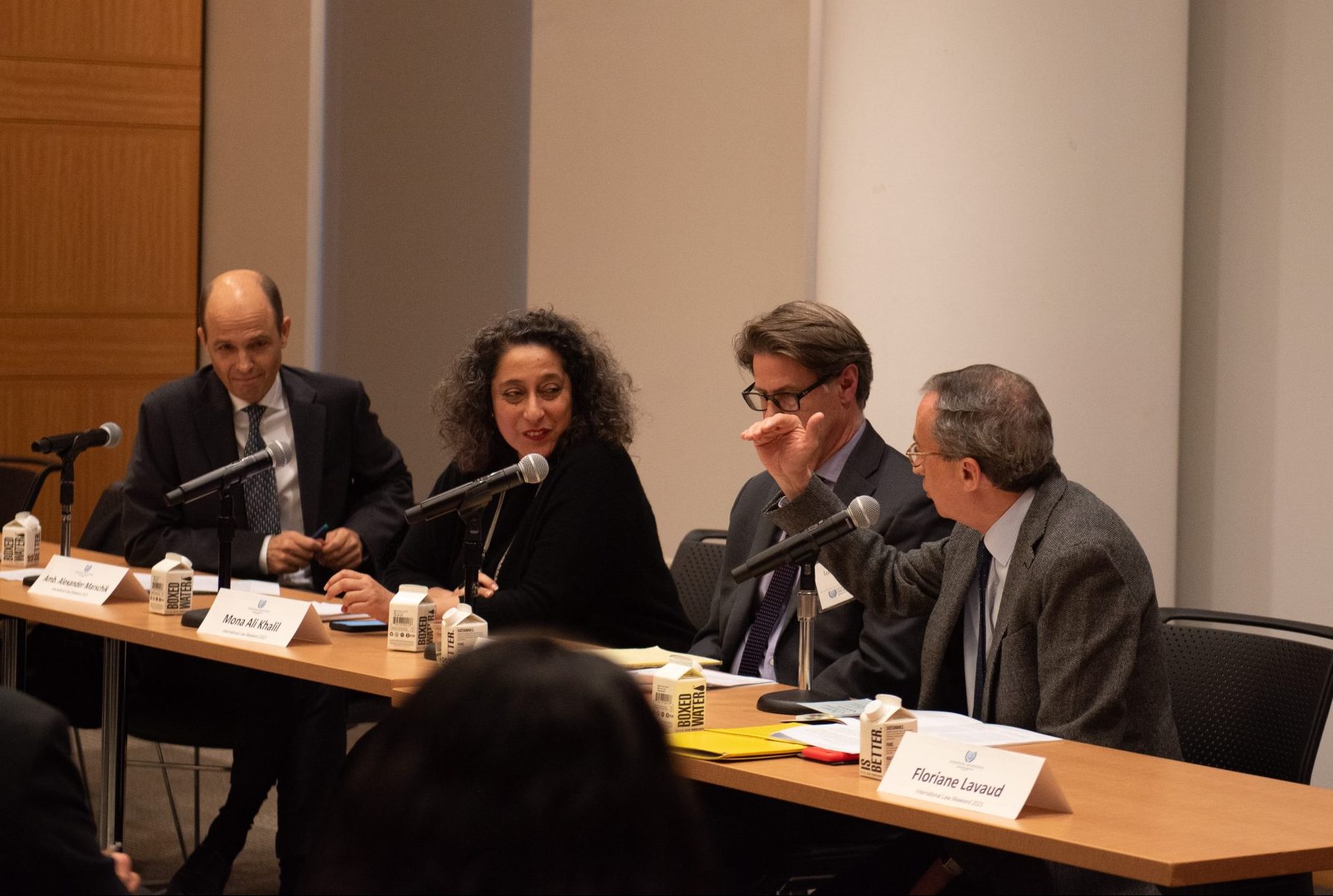 Another topic explored in the panel pertains to embracing the practice of deliberation to accomplish success within the Security Council. Although material power and voting power seem to be all that really matter in the Security Council, Professor Johnstone strongly believes that deliberation can affect the council’s direction under the influence of two principles: participation and publicity.
Another topic explored in the panel pertains to embracing the practice of deliberation to accomplish success within the Security Council. Although material power and voting power seem to be all that really matter in the Security Council, Professor Johnstone strongly believes that deliberation can affect the council’s direction under the influence of two principles: participation and publicity.
On participation, each of the ten elected members of the Security Council has an individual voice and influence either collectively on all ten elected members or in smaller groups. Following the UN Charter, it is imperative to note that every member of the Security Council, including the five permanent members, carries the crucial duty of effectively representing the collective interests of the entire membership. From the perspective of the Security Council, even if the voices of all ten elected members are not heard directly, they are the audience to whom positions must be justified if, for any reason, one cares about their support.
Concerning the significant resolution mandating the five permanent nations to explain their use of veto power to the membership of the United Nations, Ambassador Gómez-Robledo emphasized that UN Resolution 76/262 is a significant framework that guarantees a specific degree of responsibility for the five permanent members. As he stated, implementing this mechanism has given rise to a newfound recognition of the inherent moral implications of exercising veto power.
Regarding the various measures that member states can potentially undertake to improve collaboration between the UN Security Council and the International Court of Justice, Ambassador Gómez-Robledo highlighted that Chapter 6 of the UN Charter confers upon the UN Security Council the power to submit to the ICJ controversies between two or more states. Although the ICJ does not possess traditional domestic coercive authority, it has successfully ensured the enforcement of its decisions.
Ambassador Gómez-Robledo stressed that, although the veto power has been utilized to impede the Council’s involvement in security agenda issues, he strongly believes in the fundamental essence and underlying principle within Article 27.3. According to the Ambassador’s perspective, the General Assembly could outline specific situations wherein the permanent members should not exercise the veto power.
In summary, the Council’s apparent deficiencies in conflict resolution have raised concerns about its effectiveness as the primary protector of global peace and security. The panel expressed urgency about reforms to enhance the power of elected representatives, reducing the impact of the P-5 veto power while underlining the importance of international law as the primary mechanism for resolving conflicts and maintaining global peace. As said by Ambassador Gómez-Robledo´s closing statement, International Law remains “the last language between two conflicting parties, and those in conflicting parties express themselves in legal terms.”
I thank Harrison Gregorie for his invaluable insights on this post.

